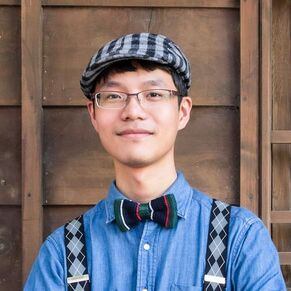Purdue BME grad student wins NIH BRAIN Initiative Contest
Gao’s winning video is titled “Exploring the 3D nanoarchitecture of neuronal membranes at dendritic spine by labeling Channelrhodopsin-2.” It features a nanoscale perspective and a 3D view of the dendritic spine and its cross-section in a mouse’s brain. Dendritic spines are tiny protrusions that emerge from a neuron’s dendrites, which are branches that extend from nerve cells (neurons).
The annual BRAIN Initiative Photo and Video Contest celebrates the beauty and complexity of the brain, aiming to inspire future neuroscientists and engage the public with the stunning progress in brain studies.
Fang Huang, Reilly Associate Professor and Gao’s advisor, encouraged him to enter the contest, so they could highlight their research on a much larger scale.
“The brain consists of a complex network with over 80 billion interconnected neurons. The video visualizes synapses, the fundamental units which transmit neurotransmitters from one neuron to another. These data are captured by a newly developed super-resolution microscope achieving ~15 nm resolution through tissues, as part of my PhD thesis work,” said Gao. “Entering the contest also gave me a deeper appreciation for how powerful images and videos can be in engaging and inspiring others. I also learned a lot from seeing the incredible work of researchers from different backgrounds, which has motivated me to continue contributing to this field.”
Gao received this prestigious award at the 10th annual BRAIN Initiative Conference. He also will have the chance to be posted in the popular BRAIN Initiative calendar.
Gao collaborated with his advisor as well as Alexander Chubykin and Xi Cheng from biological sciences and the Envision Center to earn this award.
Gao is a member of Huang’s lab in the Weldon School, and his research focuses on inventing high-resolution microscopy technologies by visualizing individual molecules deep inside the brain.
"My experience as a graduate student in Purdue's Biomedical Engineering program has been instrumental,” said Gao. “The rigorous training, access to various resources, and supportive mentorship from faculty have equipped me with the skills and confidence to communicate my research. Purdue BME has fostered an environment where innovation and creativity thrive, enabling me to produce impactful and inspiring scientific work."
This collaboration could have multiple implications on the future of healthcare, including cancer research. Professor Huang is also a member of the Purdue Institute for Cancer Research.

